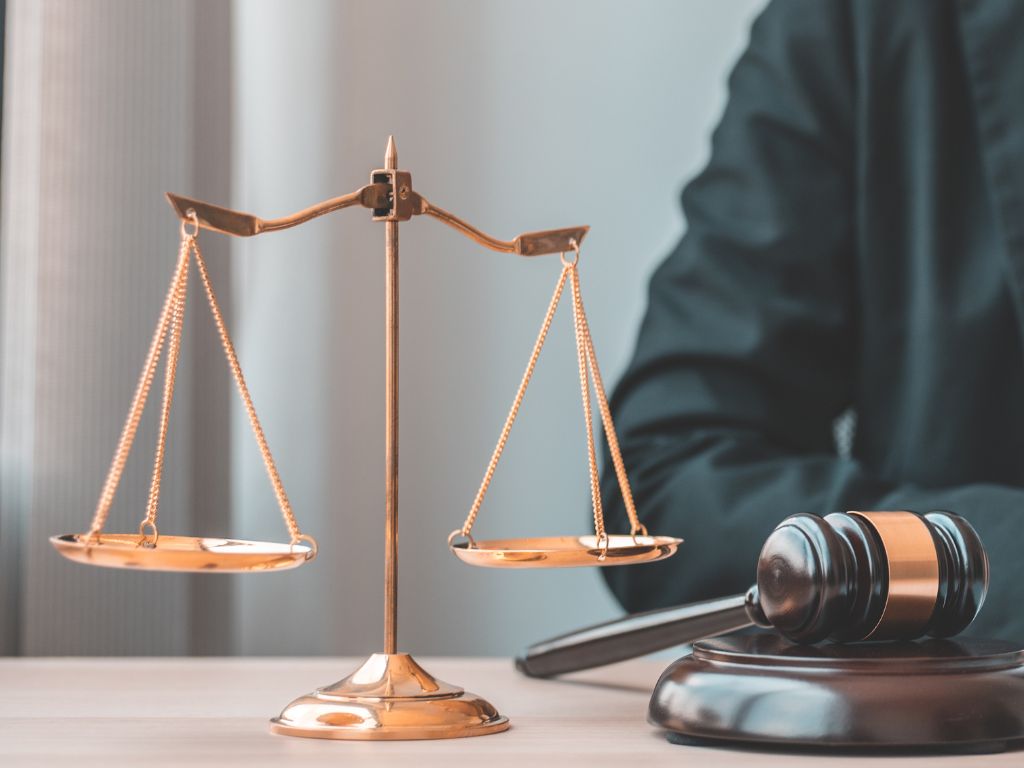
Trademarks are an important intellectual tool for businesses, distinguishing products and services in the marketplace and serving as symbols of brand identity.
Trademark infringement occurs when an unauthorized party uses a mark that is identical or confusingly similar to a registered trademark, leading to consumer confusion and having a possible financial impact on its holder.
Here, we look at trademark infringement penalties and explore the legal remedies individuals or businesses can pursue if they experience one.
What Is Trademark Infringement?
Trademark infringement occurs when a party uses a trademark that is identical or confusingly similar to a registered trademark without authorization. The key elements of trademark infringement include:
- The unauthorized use of a trademark owned by another; and
- There is a likelihood of confusion among consumers regarding the source or affiliation of goods or services.
An example of trademark infringement could be if a new beverage company uses a logo strikingly similar to Coca-Cola’s or if a vendor sells counterfeit bags with a logo similar to Louis Vuitton’s.
Penalties for trademark infringement can be severe, encompassing legal consequences such as injunctions, monetary damages, attorney fees, and, in extreme cases, potential criminal charges.
Penalties for Trademark Infringement
Trademark infringement carries legal consequences designed to protect trademark owners’ rights and maintain fair market competition. These penalties can severely impact the infringing party’s financial and reputational standing.
Injunctions
Injunctions are court orders that prohibit the infringing party from continuing the unlawful use of the trademark. These can be temporary or permanent. Temporary injunctions are issued during the litigation process to prevent further damage until the case is resolved. Permanent injunctions are granted when the court rules in favor of the trademark owner, permanently barring the infringer from using the trademark.
Monetary Damages
Monetary damages aim to compensate the trademark owner for losses incurred due to the infringement. There are several types of damages:
- Actual damages which are calculated based on the financial loss suffered by the trademark owner, including lost sales and damage to the brand’s reputation;
- Profits of the infringer can be awarded to the trademark owner, reflecting the infringer’s earnings from the infringement;
- Statutory damages provide a range of financial penalties, often between $1,000 and $200,000 per infringement, when actual damages and profits are difficult to determine.
As a punitive measure in cases of willful infringement, courts can award enhanced damages of up to triple the actual damages.
Attorney Fees
Sometimes, the prevailing party can recover attorney fees from the infringing party. This usually occurs when the court deems the infringement to be willful or in bad faith. The recovery of attorney fees helps alleviate the trademark owner’s financial burden for legal expenses incurred during litigation.
Potential Criminal Charges
In severe cases of trademark infringement, particularly those involving counterfeit goods, criminal charges may be filed against the infringer. These charges can result in substantial fines and imprisonment, reflecting the severe nature of intellectual property theft.
Financial and Reputational Impact of Trademark Infringement
The financial and reputational impact of trademark infringement penalties can be significant for businesses, including:
- Financial costs associated with damages, attorney fees, and business disruption can heavily strain a company’s resources;
- Reputational damage results in the loss of customer trust and business relationships, making it difficult to regain credibility; and
- Long-term consequences can affect the brand value and the company’s market position.
These penalties highlight the importance of respecting trademark rights and underscore the potential repercussions for individuals and businesses unlawfully using another party’s trademark.
Trust the Intellectual Property Lawyers at BrewerLong
If you have any issues, questions, or concerns related to a trademark infringement, the attorneys at BrewerLong are here to help. Our intellectual property lawyers have experience filing for and protecting trademark holders’ rights. Call our office or fill out our online contact form to schedule a consultation to discuss your situation.
Frequently Asked Questions
How Much Can You Sue for Trademark Infringement?
The answer varies from case to case, but you can generally sue for actual damages, profits of the infringer, and statutory damages ranging from $1,000 to $200,000 per infringement. Talk to an intellectual property attorney to learn more about the damages you may be entitled to.
How Can I Avoid Trademark Infringement?
To avoid trademark infringement, conduct thorough trademark searches before using a new mark, register your trademarks with the appropriate authorities, and seek legal advice to ensure your mark does not infringe on existing trademarks.
Can I Use a Similar Trademark If My Business Operates in a Different Industry?
Using a similar trademark in a different industry may still constitute infringement if it causes consumer confusion. Therefore, it is important to conduct a thorough trademark search and seek legal advice to assess the risk of infringement.
What Should I Do If I Receive a Cease and Desist Letter?
If you receive a cease and desist letter, it is important to take it seriously. Consult an intellectual property attorney to evaluate the claim, understand your legal options, and determine the best action.


